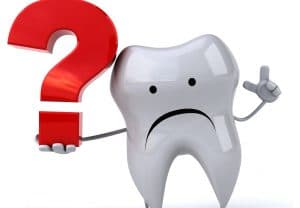 Addressing a tooth problem can mean a variety of things. Even when the solution seems obvious, there may be a way to achieve optimal results in a more lifelike or minimally invasive manner. For example, cosmetic tooth bonding is often a surprisingly effective solution for addressing a wide range of concerns with the health, integrity, or appearance of one or more teeth. Today, we examine a few times when a tooth makes a good candidate for tooth bonding, and how the procedure can help you restore or improve your tooth with optimal results.
Addressing a tooth problem can mean a variety of things. Even when the solution seems obvious, there may be a way to achieve optimal results in a more lifelike or minimally invasive manner. For example, cosmetic tooth bonding is often a surprisingly effective solution for addressing a wide range of concerns with the health, integrity, or appearance of one or more teeth. Today, we examine a few times when a tooth makes a good candidate for tooth bonding, and how the procedure can help you restore or improve your tooth with optimal results.
What is a tooth bonding procedure?
Tooth bonding is the process of using biocompatible, tooth-colored composite resin to restore a small area of your tooth structure. The resin is comprised of finely ground acrylic and quartz-like particles, and has the ability to be customized to match your tooth’s unique color and shade. The bonding procedure involves placing the customized resin on the affected area of your tooth’s structure, then sculpting and shaping it to match the tooth’s ideal shape, size, and contour. Once the bonding is hardened and polished, it can blend in discreetly with your tooth while improving its cosmetic blemish or restoring its healthy structure.
When the tooth is cosmetically blemished
Tooth bonding is most often recommended as a cosmetic solution to addressing a tooth’s visible blemish. This may be a case of discoloration that doesn’t respond to teeth-whitening, or a chip in the tooth’s edge that affects its appearance as well as its structural integrity. There are several conditions that can be successfully improved with the help of customized tooth bonding, and the minimally invasive nature of the treatment can make it preferable to other, more involved solutions, such as porcelain veneers or dental crowns.
When the tooth is structurally damaged
A chip in a tooth’s crown structure is one type of blemish that can affect more than just a tooth’s appearance. Others might include light cracks in the tooth’s surface, or a worn-down area of its chewing surface. Concerns that impact your tooth’s main structure may be good candidates for tooth bonding if they don’t affect an extensive amount of your tooth’s natural crown, or its root. With customized bonding, your dentist can restore the tooth’s size, shape, and structural integrity without having to permanently modify any of its healthy, natural structure.
Learn if your tooth is a candidate for bonding
Customized tooth bonding can be an excellent, minimally invasive way to address a number of different types of tooth concerns. To learn more, schedule a consultation by calling the Dental Centre of Conroe in Conroe, TX, today at (936) 441-4600.


